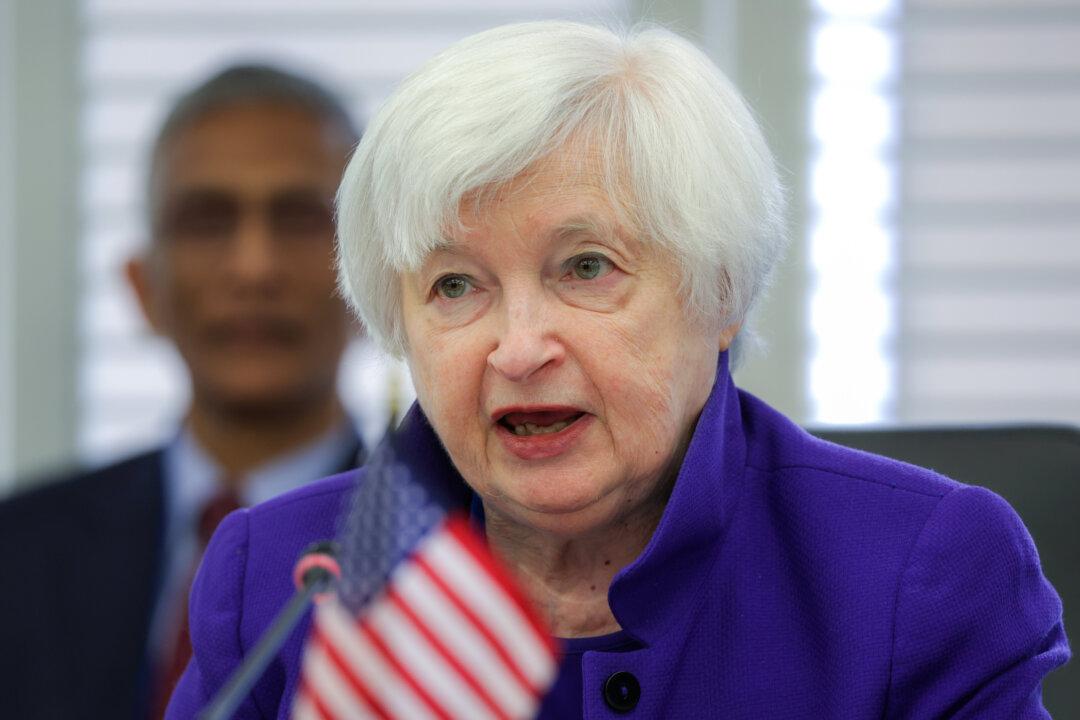Treasury Secretary Janet Yellen said she will not rule out the possibility of declaring the debt ceiling unconstitutional if Congress cannot resolve its standoff over the debt ceiling, but said there are “no good options” on the table.
“There is no way to protect our financial system in our economy other than Congress doing its job and raising the debt ceiling and enabling us to pay our bills. And we should not get to the point where we need to consider whether the president can go on issuing debt,” Yellen told ABC’s “This Week” on Sunday.





